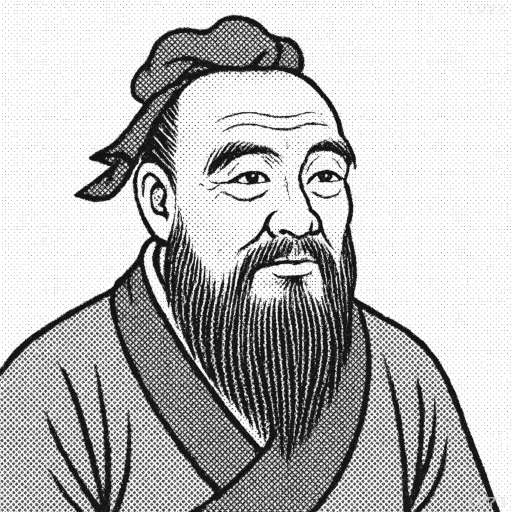“By three methods we may learn wisdom: First, by reflection, which is noblest; Second, by imitation, which is easiest; and third by experience, which is the bitterest.”

- 551 BC – 479 BC
- Han ethnicity
- Philosopher, educator, politician
table of contents
Quote
“By three methods we may learn wisdom: First, by reflection, which is noblest; Second, by imitation, which is easiest; and third by experience, which is the bitterest.”
Explanation
In this saying, Confucius outlines three distinct approaches to gaining wisdom: reflection, imitation, and experience. He values reflection the most, as it involves deep self-examination and thoughtful contemplation, allowing us to learn without external consequences. Imitation, while simpler, involves observing and emulating the behaviors of others, offering a straightforward path to wisdom by following positive examples. Finally, experience—often the most challenging—is called “bitter” because it involves learning through personal trials and errors, which can be painful but ultimately enlightening.
This teaching is especially relevant today, as each method offers different benefits. Reflection provides a chance to consider our actions and beliefs, helping us make thoughtful decisions. Imitation allows us to learn from mentors, role models, or historical figures, bypassing some of the mistakes they may have made. Experience, though often difficult, provides the most vivid lessons, as we learn resilience and growth by facing life’s challenges directly. For example, a person might reflect on their choices to gain clarity, imitate a mentor’s positive habits to improve, or learn through personal hardship, developing strength and wisdom.
Confucius’s insight reminds us that wisdom is multi-dimensional and can be gained through various paths. By balancing reflection, imitation, and experience, we grow in understanding and resilience. This approach fosters a well-rounded perspective, enabling us to navigate life with both clarity and compassion for ourselves and others.
Would you like to share your impressions or related stories about this quote in the comments section?




